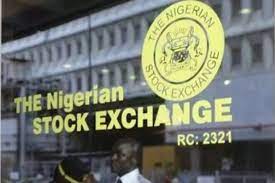FG yet to explore its full opportunities for capital formation.

As Nigeria marks 25 years of unbroken democratic rule, financial market professionals assess the local capital market and growth opportunities. They observe that though the market capitalisation has grown by 14.06% on an annual compound basis, the federal government is yet to explore its full opportunities for capital formation.
Mr. Boason Omofaye, a seasoned financial journalist and anchor of the Arise Xchange TV Programme, reflected on the capital market’s journey and singled out the Debt Management Office as one of the major innovations in the Fourth Republic dispensation.
He noted that the DMO, since its establishment on October 4th, 2000, has supported the reactivation of the bond market, raising trillions of naira for the government.
According to him, the Green Bonds Sukuk (Non-Interest Finance) for funding infrastructure and the innovative FGN Savings Bonds have enabled the Federal Government to tap into the capital market and mobilise capital.
He said, “The capital market has been pivotal to the Federal Government getting the right international sovereign ratings and has supported State Governments like Lagos in raising capital to address funding gaps for infrastructure. We have witnessed the growth of a deep debt capital market post-1999, which has attracted development finance institutions to commit to new levels of investments. It has incentivised several local financial institutions and investment groups to list infrastructure funds, and we need 10 more to address the huge gap in the country.”
For Mr. David Adonri, a stockbroker with HighCap Securities, shortly before 1999, when democracy returned to Nigeria, several reforms occurred in the capital market, which automated. The automation increased the volume and value of transactions, thus making the market more liquid and profitable.
“However, the gains recorded in the decade to 2007 were wiped out by the global meltdown, which nearly crashed the Nigerian Capital Market. The market has since recovered and is galloping at the secondary market segment, but the primary market is yet to. Generally, the market can boast of world-class technology now and more product offerings. Market platforms have increased with FMDQ and NASD coming on board for securities while LCFE and AFEX operate in the Commodities space,” Adonri added.
He decried the low activity in the primary market, the Capital Market has not risen to expectations in terms of capital formation since 1999, but as an investment outlet, it has overperformed.
Seyi Akinbi, an investment analyst, acknowledged that the bond market has continued to mature overtime with the creation of the DMO in 2000 to manage federal government debt and the rejigging of the Pension Act of 2004. These have helped to funnel liquidity to the fixed-income market, creating an avenue for the government and corporate entities to raise wholesale funds in the market. He said,“ The subsequent establishment of the FMDA/FMDQ has also helped to regulate the fixed-income markets, propelling secondary market activities.”
In terms of opportunities, he believed there was room for the market to move from trading plain vanilla products to trading more advanced and complex products, i.e. derivatives managed by a central exchange. This will boost demand for fixed-income products and elevate trading volume going forward.
For Mr Boason Omofaye, despite the transformation of the equities market in the democratic dispensation, an increased volume of listings that deepens the market is needed. This should cover critical sectors of the economy.
Proshare,initsreporttitled Nigerian Capital Market 2024 Outlook Report: Working Towards a Fit-for-purpose Capital Market: Issues, Insights, and Strategy stated that “The Nigerian capital market should be used to reposition the economy along a path of sustained growth by broadening asset classes, improving liquidity, and deepening transactions. The more the government sweats public assets, the better the economic growth and development outlook. Proshare analysts argue that the market is expected to create liquidity and value and not serve as a marquee for nationhood; they note that wearing large dangling necklaces may look good on Afrobeat artists, but gold has better uses as a financial asset.”
“Where asset markets are allowed to breathe, the government’s ability to turn equity into sustained economic value guarantees a better quality of life for all citizens, as a strong capital market is a wave that carries all boats.”
It also recommended the following key steps for the capital market
- Deepening and broadening the mandate of the Central Securities and Clearing System (CSCS) as a Financial Infrastructure (FI) capable of smoothly settling different classes of assets and transactions based on blockchain technology.
- There will be a need to determine whether the multiplicity of clearing infrastructure in Nigeria is optimal; the fact that the NGX and the FMDQ have independent clearing house arrangements while being joint largest shareholders in the CSCS requires clarity and resolution.
- The absence of an equity side to the federal government’s fiscal balance sheet would need to be visited as it limits its fiscal liquidity and ability to leverage its finances to improve economic management and household well-being. As sandboxes, the government should list some viable companies, such as the Nigerian National Petroleum Company Limited (NNPCL), on the Nigerian Exchange Limited (NGX). The listing could be by way of an Introduction with a 5% free float Offer for Sale to test the waters.
- The 40% government shares in the 11 Electricity Distribution companies (Discos) recently transferred from the Bureau of Public Enterprises (BPE) to the Ministry of Finance Incorporated (MoFI) should be listed on NGX. A 5% listing would be a nod to a price discovery arrangement for the Discos while creating a framework to improve corporate governance.




